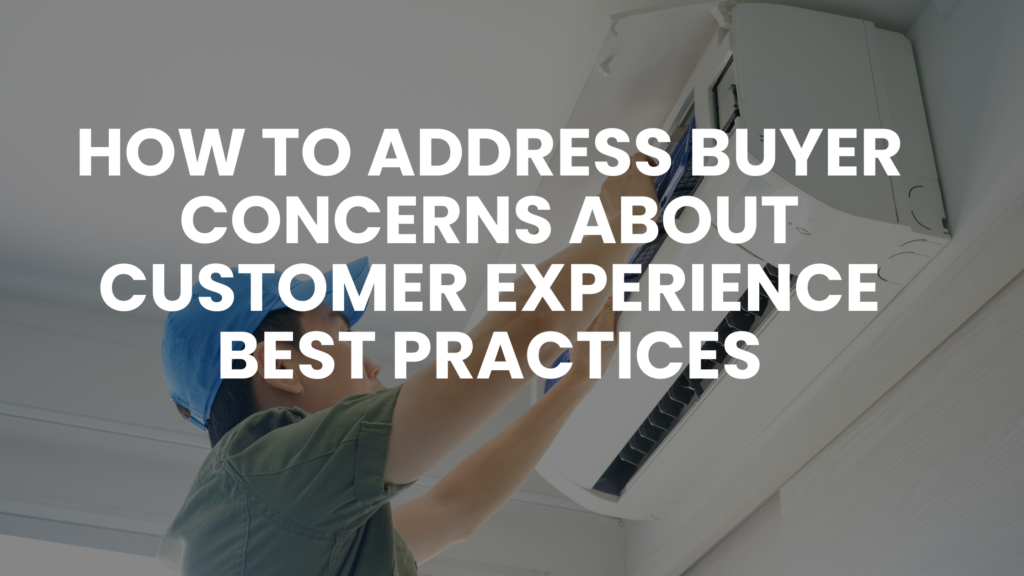When selling your HVAC business, potential buyers will look beyond revenue and assets—they want to ensure that the customer base remains strong after the transition. One of the biggest concerns buyers have is whether your company follows customer experience best practices that will sustain customer loyalty and maintain service quality under new ownership. Addressing these concerns proactively can increase buyer confidence and help you secure the best price and terms for your sale.

1. Understanding Buyer Concerns
Buyers worry about maintaining customer satisfaction, preventing negative reviews, and ensuring continued service excellence after they take over. They want to know if your business has well-documented customer experience best practices that make it easy for new leadership to step in without disruptions. If customer service is inconsistent or overly reliant on a single owner, buyers may view your business as a riskier investment.
2. Showcasing a Proven Customer Experience Strategy
One of the best ways to alleviate buyer concerns is by presenting a structured approach to customer experience best practices. This includes:
- Standardized Service Protocols – Having documented procedures for scheduling, follow-ups, and handling customer inquiries reassures buyers that service quality won’t decline.
- Employee Training Programs – Well-trained technicians and customer service representatives ensure consistency, even if ownership changes.
- Customer Satisfaction Metrics – Share customer retention rates, Net Promoter Scores (NPS), and positive reviews to demonstrate a history of excellent service.
3. Demonstrating Customer Loyalty and Retention
Buyers want to invest in a business with recurring revenue and strong customer loyalty. Highlighting long-term maintenance agreements, repeat customers, and referral programs can ease concerns about customer retention. Showing that your business actively implements customer experience best practices, such as follow-up calls and priority scheduling for repeat clients, reassures buyers that customers will stay even after the sale.
4. Addressing Negative Reviews and Customer Complaints
Every business encounters customer complaints, but how you handle them matters. Buyers may scrutinize online reviews and service history, so be prepared to discuss how you implement customer experience best practices to resolve issues. A transparent approach to handling complaints—such as using customer feedback to improve operations—will demonstrate a commitment to service excellence.
5. Making the Transition Smooth for Customers
A common buyer concern is how customers will react to the change in ownership. To mitigate this, provide a transition plan that includes:
- Customer Communication Strategy – Inform customers about the transition and reassure them about continued service quality.
- Retention Plan – Offer incentives or promotions to encourage customers to stay with the business.
- Operational Continuity – Show how your customer experience best practices will be maintained, even under new leadership.
Conclusion
Addressing buyer concerns about customer experience best practices is key to securing a successful sale of your HVAC business. By demonstrating strong customer service protocols, customer loyalty, and a smooth transition plan, you can reassure buyers that your company is a stable and profitable investment.
If you’re looking for expert guidance in preparing your HVAC business for sale, Scale or Exit Partners can help. Text or call us at (832) 745-2721, email garyd@scaleorexit.com, or visit www.scaleorexit.com. Whether you’re ready to sell now or preparing for a future sale, we have access to investors and the expertise to help you get the best price and terms.
